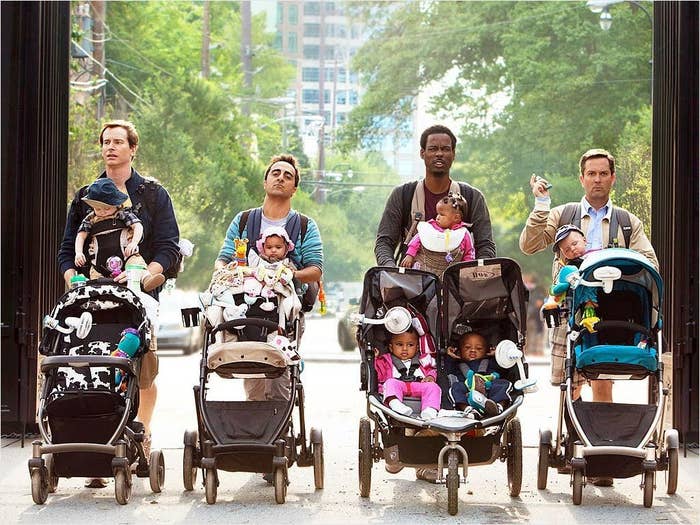
USA Network’s breakout hit Mr. Robot (ending its first season Wednesday) gets so much right. It gets the big things right — story, writing, direction, cinematography, music, and of course acting; and it gets the details right — it features an unusually accurate portrait of hacking, and being set in New York, it features a realistically multi-ethnic, -lingual, and -national cast. The show regularly passes the Bechdel Test and Dylan Marron’s Every Single Word Test, which asks: Are there two non-white characters who speak to each other about something other than a white character? That is why it’s perplexing and disappointing to me that it gets one glaring thing wrong — the opportunity to give the lead character, played by Rami Malek, a name that reflects Rami's ethnic background. Instead, the Egyptian-American Malek plays a character with the unmistakably white name “Elliot Alderson.” And while it may seem like a victory for a brown actor to play a character with a stereotypically white name, it actually reinforces the idea that complex, multidimensional characters have to read as white, while characters with "brown" names are relegated to roles where we play terrorists named Mohammed or cabbies named Apu.
To be clear, I am certainly not referring to how Rami portrays Elliot — he plays the role wonderfully. Rami is a brilliant actor who has been kind to me the handful of times I’ve seen him at auditions over the last decade or so. I’ve been acting in Los Angeles for about 13 years, working on everything from commercials to TV (The Comeback, How I Met Your Mother) and movies (Harold and Kumar 2, What To Expect When You’re Expecting). When I heard Rami was playing a lead, I was thrilled for him, and for all of us brown actors. When one of us wins, we all win.
Still, and perhaps unwittingly, Mr. Robot missed an opportunity here. When we first start acting, brown actors tend to play “brown characters." As casting directors and producers get to know us and trust our range, the roles we play tend to vary. And getting to play roles with white names feels like a victory. I know I felt that way when I first “graduated” from playing Khalids and Babirs to Patricks and Freds. Bollywood icon Priyanka Chopra, star of ABC’s upcoming Quantico, told ABC she wanted her character to be ethnically ambiguous, to help Indian actors be taken more seriously — implying, I guess, that the less you read as Indian, the more seriously you will be taken. Her Quantico character name? The unambiguously white “Alex Parrish.”
But to me, after over 13 years in the industry, these do not seem like victories anymore. Playing more interesting and larger roles is, but squeezing us unrealistically into a white box is a subtle form of ethnic erasure, and it is not a win. It is saying to the audience and to brown actors that people with white names are more interesting and relatable, and people with brown names are one-dimensional and obsessed with and/or defined by our brownness. Not only does this contribute to the continued stereotyping of brown people, it is false.

My name is Amir Talai. I am not obsessed with or defined by my brownness. I am of course aware of it and the way it has at times defined me (particularly in my profession), but I am more than my brownness. I am an environmentalist, a dog owner, a proponent of talk therapy, and a lover of old SNL, hip-hop, and occasionally country music.
There are a lot of Amir Talai’s in this country — I know a ton of them — but I don’t often see them on TV. I once was thrilled to be cast in the role of the lead’s best friend. My character name was Stanley, and I asked if we could change my character name to something matching my Persian heritage. I was told the director “didn’t want to tell that story.” Because…people don’t have Persian-American best friends?
I am grateful and proud that I often get cast as interesting characters not obsessed with or defined by their ethnicity. But when those characters have white names, I sometimes ask to have my character name changed to something that is more congruent with how I look.
The responses have been mixed. Sometimes the creators enthusiastically ask me for a suggestion and change it, other times they decline. But every time, I am nervous to ask. I don’t want to be seen as ungrateful or a problem, and I also have the ludicrous fear that the creators, upon learning that I am not white, will fire me and hire the white actor they always wanted.
I was actually scared just publishing this piece. I didn’t want to unnecessarily remind people that I’m brown, although I’m not sure I can do that any more than people’s eyes can. I didn’t want to “out” Rami as Egyptian-American in case he doesn’t want his background being a topic of conversation. I didn’t want to upset Mr. Robot’s Egyptian-American creator Sam Esmail in case he doesn’t want people “distracted by Elliot’s ethnicity.” I also didn’t want to be seen as criticizing a brilliant show that so regularly passes the Marron test — from a conversation between three guys of black, Latino, and Arab descent, to a Swedish bad guy and his Danish wife who converse in Swedish and Danish, Mr. Robot is a great show full of diverse and complex characters.
But ultimately, I think this is a conversation that should be had by more than just me and my bosses. To my appreciation, almost each time I talk about this with a producer, we have, I think, an honest, rational conversation about how brown actors are portrayed, without resentment or prejudice. I hope more people having such conversations will lessen the fear that brown actors have around this.
I suspect that fear is one reason producers stick with “neutral” (ahem, white) character names. If a character is a nerd, or a cheater, or an idiot, you might fear that giving them a brown name might open you up to charges that you’re prejudiced against brown people. But I promise you, a Priyanka is just as likely to be a cheater as an Alex. And as long as you are telling the story with a brown actor, why not tell the story of a brown character? Because until you do, as much as Priyanka Chopra would like to think otherwise, the ghettoization of brown actors will continue — those without accents will be taken seriously and cast as complex, leading characters named Alex; and those with accents will be cast as marginal, uninteresting characters named Apu.
Is it possible there are people who look like Rami, Priyanka, or me who are named Elliot, Alex, or Stanley? Yes, of course it’s possible, just the same way it’s possible for a group of friends living and working in New York City to be all white. But much more often than not, that group of friends includes someone who is not white. And a lot of the time, that friend is named Rami, Priyanka, or Amir.
Mr. Robot does such a fantastic job creating an exciting, realistic world with a colorful cast. I just wish that in the interest of realism and progress, it had gone all the way. Or maybe, halfway? Maybe next time, the lead character will be called Elliot Malek.
Correction
Two previous versions of this post misstated a character's nationality on Mr. Robot. The character is Danish.
Correction
A character on Mr. Robot speaks to his Dutch wife in Swedish and Dutch. An earlier version of this post misstated her nationality.
